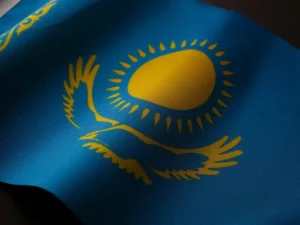On September 2, President Kassym-Jomart Tokayev delivered his annual state-of-the-nation address titled “Just Kazakhstan: Law and Order, Economic Growth, Public Optimism.” In his speech, President Tokayev outlined the key goals for the nation’s development, focusing on sustainable socio-economic progress.
A significant announcement was the upcoming nationwide referendum on October 6 regarding the construction of a nuclear power plant. “The upcoming referendum will be another manifestation of a broad national dialogue and a vivid example of the implementation of the concept of a ‘listening state.’ By taking such steps, we are forming a new socio-political culture and establishing new standards for making key state decisions,” the President stated.
He also highlighted recent legislative accomplishments, including the passage of 102 laws during the latest parliamentary session, which address areas such as combating human trafficking and child protection. New laws have been introduced to strengthen punishments for violence against women and children.
Shifting focus to new tasks and priorities, the President emphasized the need to address imbalances between monetary and fiscal policies, particularly through tax reforms and enhancing the investment climate. “We need a new law on banks that meets the urgent tasks of stimulating economic activity and further dynamic development of the fintech sector,” he stated. Tokayev stressed the importance of fostering a stable, business-friendly tax policy, proposing that to mitigate corruption risks and ensure transparency, “it is essential to accelerate the transition of tax processes to an electronic format.” He added that the government needs to increase the share of medium-sized businesses in the economy from the current 7% to 15% by 2029.
Additionally, Tokayev called for the continued development of Kazakhstan’s industrial potential, with a focus on major projects in the petrochemical industry and gas supply.
Infrastructure development, particularly in the energy and transport sectors, was identified as a key priority. “Kazakhstan’s location in the heart of Eurasia is our competitive advantage. The investments that we are making in transport infrastructure will certainly pay off,” he emphasized. In this regard, President Tokayev underscored the importance of modernising the energy and utility sectors, improving the condition of highways, and developing air hubs.
Digitalisation is another central theme, with plans to integrate artificial intelligence into the e-government platform and establish a National AI Centre in Astana next year. “Kazakhstan should become a country where AI is widely used and digital technologies are developing,” he said. In relation to this, the completion of the fibre-optic line across the Caspian Sea by 2025 was also highlighted.
President Tokayev reaffirmed Kazakhstan’s commitment to law and order, stating that “one of my main tasks is to make Kazakhstan a place where life is comfortable and safe.” Focusing on political reforms, the Kazakh leader noted that profound socio-economic transformations and comprehensive measures in the field of human rights protection are aimed at building a just society. “Therefore, we will continue pursuing reforms and systematic work in this direction,” he stated. In this context, he announced that the transition to direct elections for village, district, and city akims (local governors) will be fully implemented by next year.
President Tokayev also emphasized the importance of strengthening the country’s workforce, called for the development of a unified package of basic state healthcare services, and advocated for improving the environmental situation, including the implementation of a nationwide reforestation movement. He stated: “Forest regeneration is crucial for maintaining ecological balance and ensuring the country’s continued sustainable socio-economic progress.”
In foreign policy, President Tokayev reaffirmed Kazakhstan’s commitment to a peaceful and balanced approach, stressing that “Kazakhstan convincingly demonstrates its commitment to broad multilateral cooperation in full accordance with the UN Charter.”
Concluding his address, Tokayev emphasized that genuinely improving the well-being of the people is the state’s primary task. “We have a clear vision of our state’s long-term development. To achieve our goals, we must uphold unity, mutual support, and respect,” he stated.


